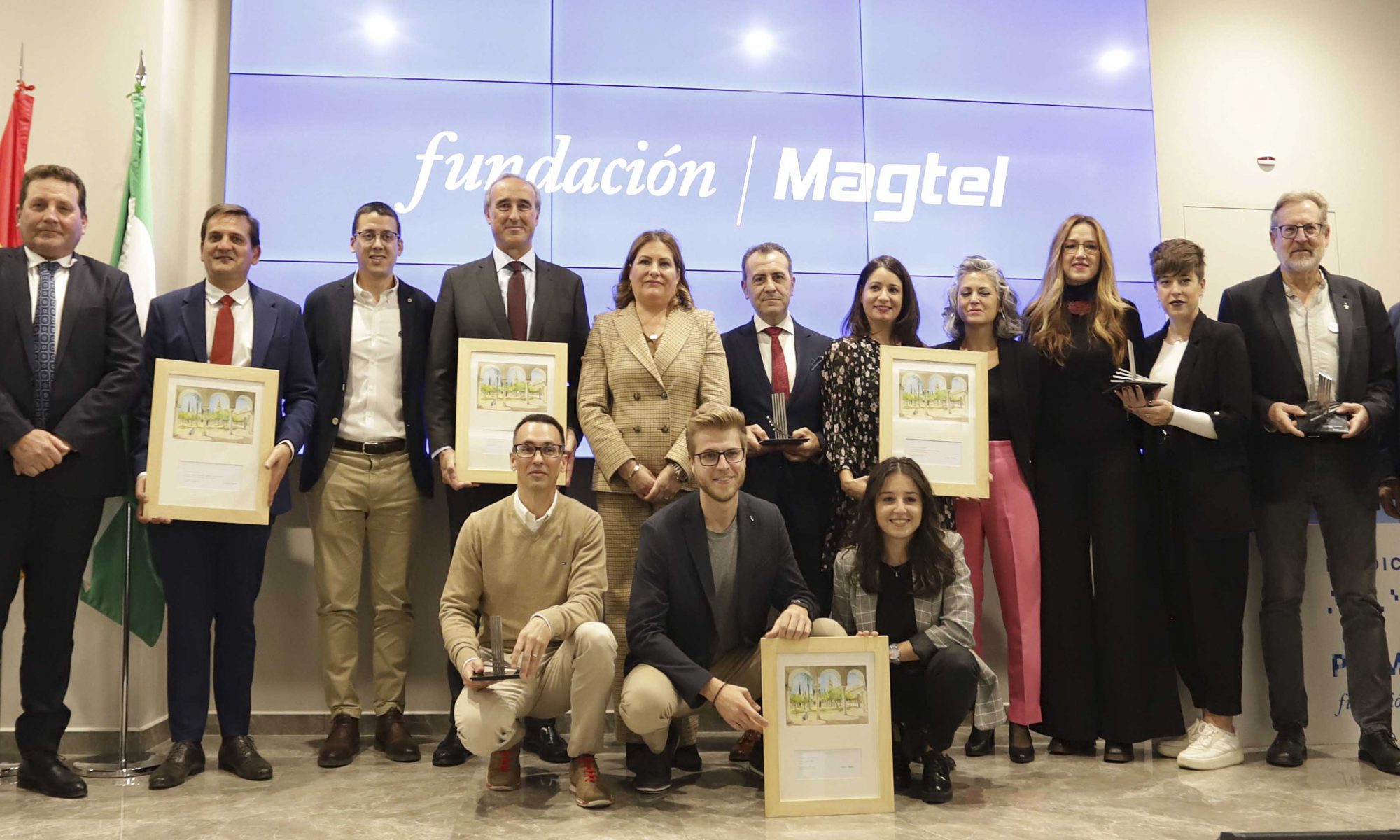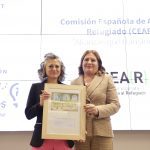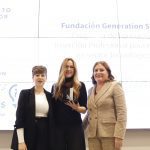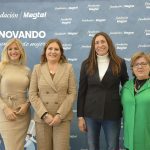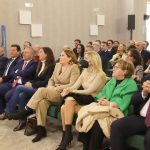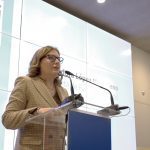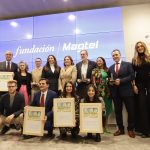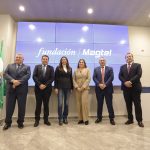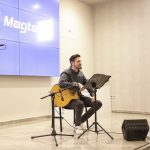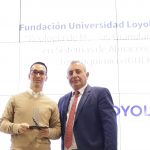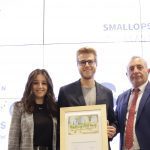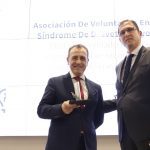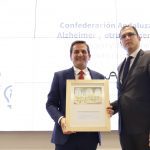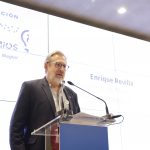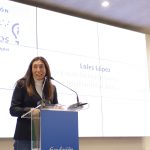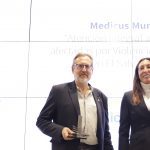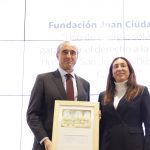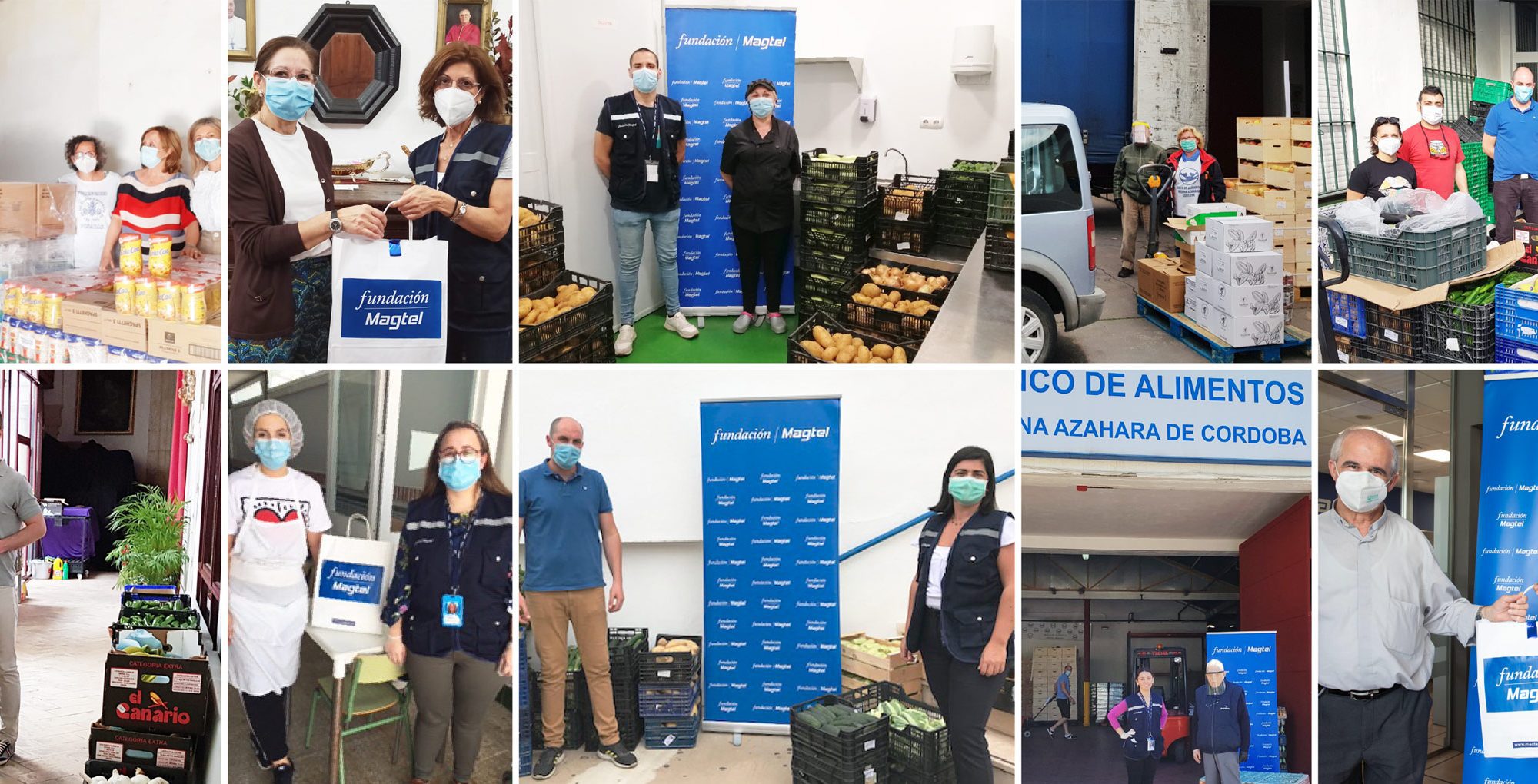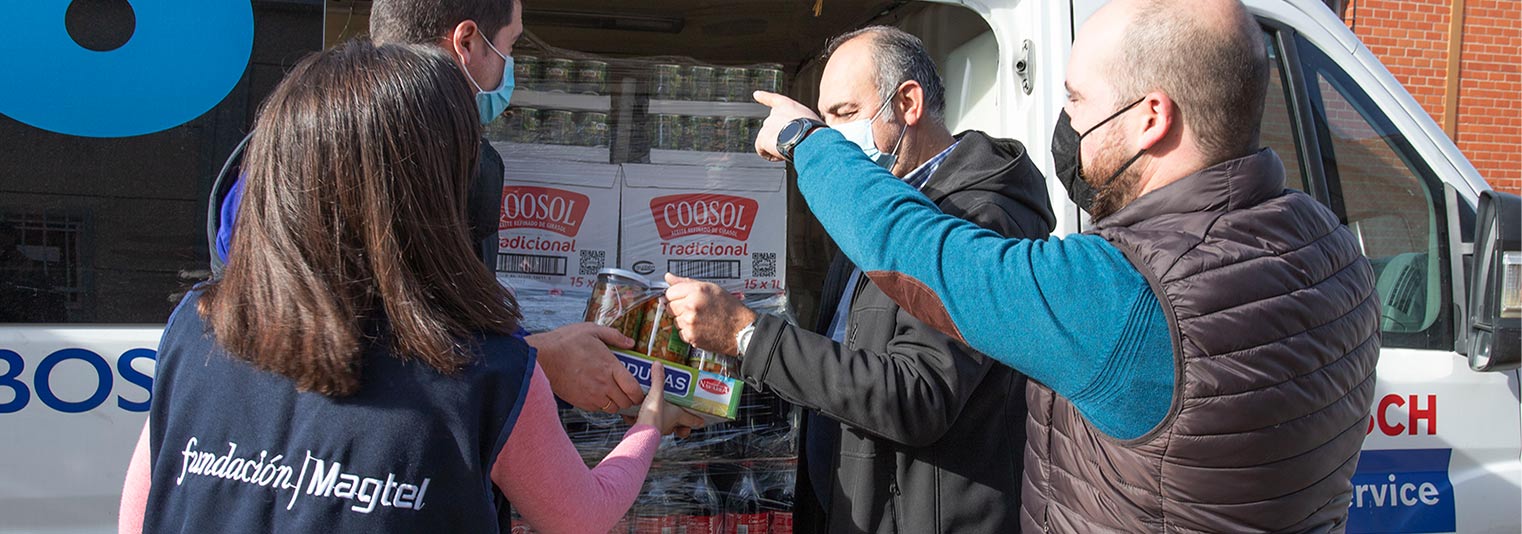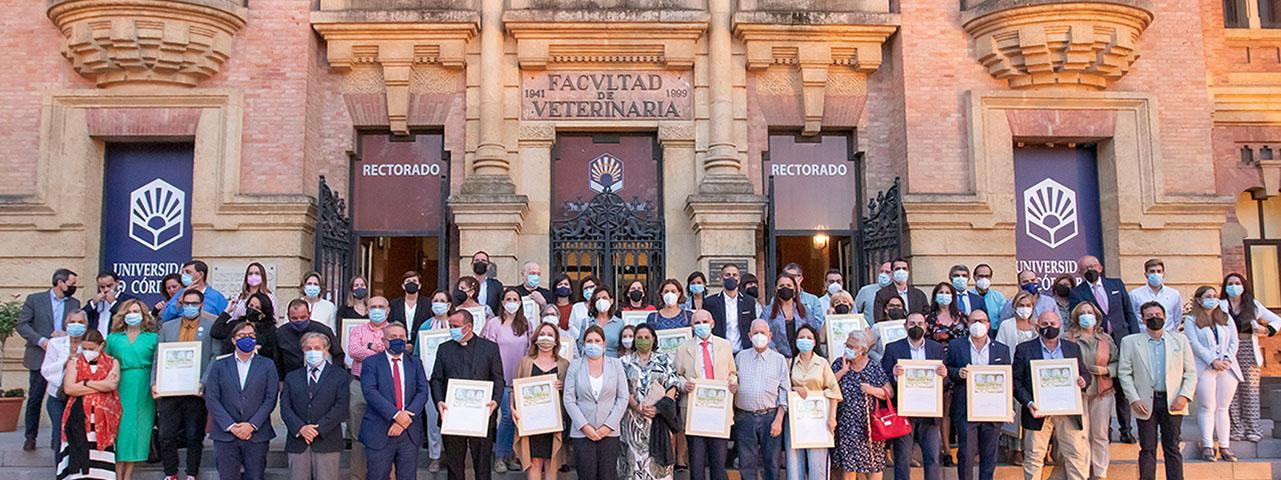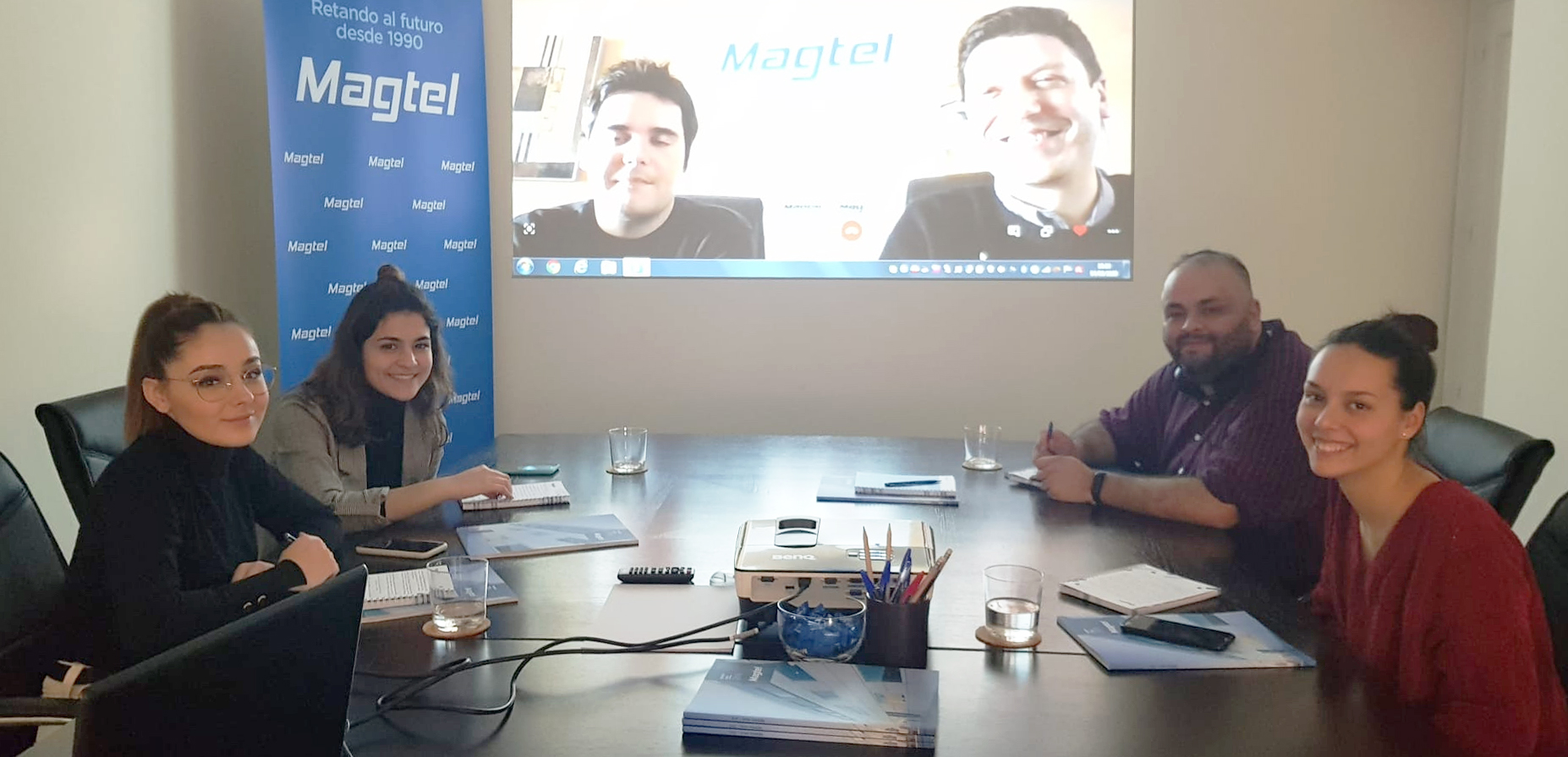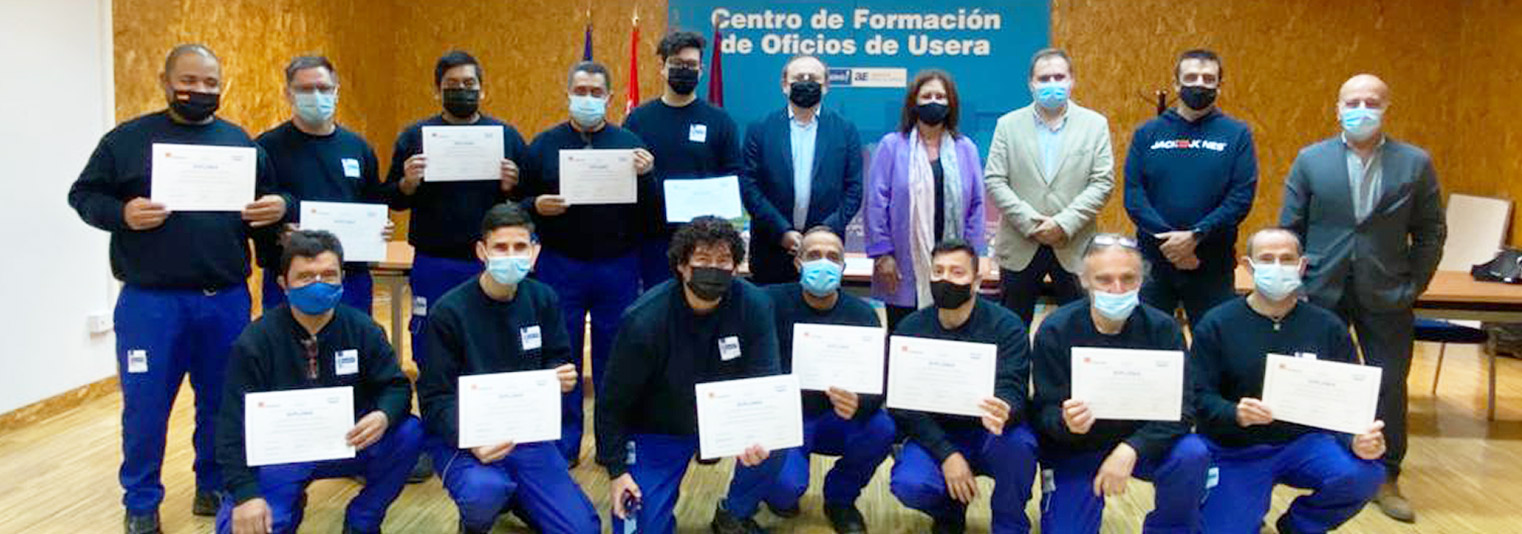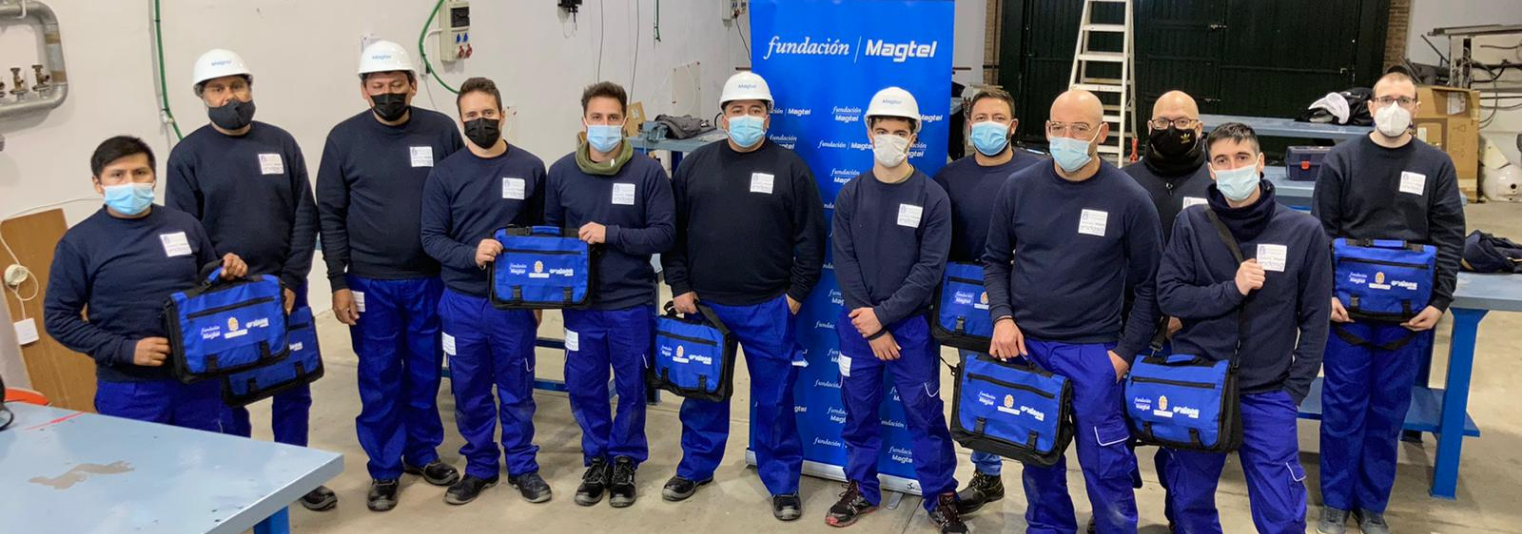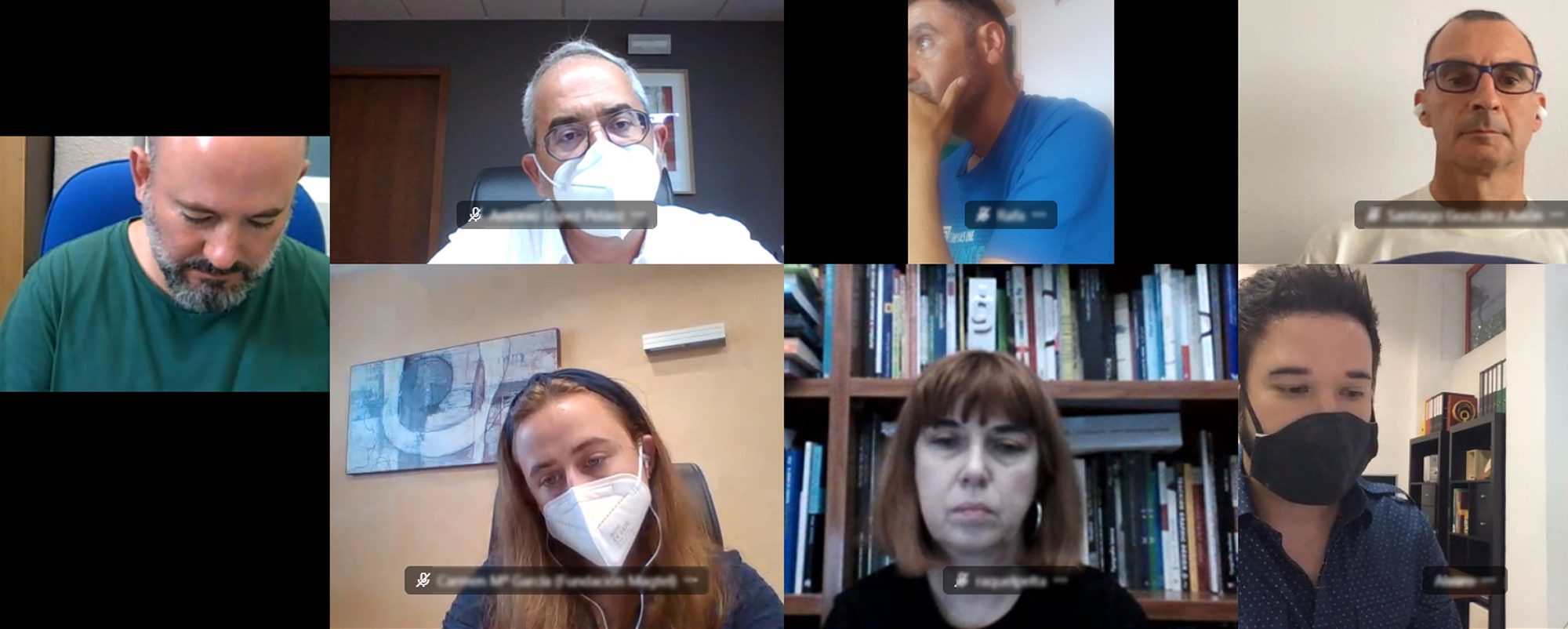Registration period open for training in the installation of photovoltaic solar panels with Fundación Magtel and Generation Spain
They begin in Seville on 26 and 28 September and in Cordoba on 3 and 5 October, and include 100 hours of work experience in companies in this sector
Fundación Generation Spain y Fundación Magtel have teamed up to provide various training courses in the field of renewables.
The programme consists of 270 technical hours, complemented by 60 hours of skills and employability and 100 hours of practical training in companies in the sector.
The initiative seeks to involve companies from the design phase of the programme until its completion, in order to adapt it to the needs of the labour market. It uses an innovative methodology with intensive, practical programmes and continuous assessment, learning with real market projects.
The photovoltaic solar panel installer is a professional working in a relatively new area of activity in a fast-growing industry: renewable energies. Thanks to the training in mechanics, electricity, installation of panels on roofs, maintenance operations, among other things, which will be acquired during the programme, a solar photovoltaic panel installer who has graduated from Generation will be able to carry out the assembly and maintenance of photovoltaic solar installations in industrial, self-consumption and residential generation plants, thus satisfying all market demand.
The requirements to participate in these courses are the following: to have a work permit in Spain; to be of working age; and to be fully available for the training. Knowledge of the electricity sector is an asset.
If you have any questions, please contact seleccion@generation.org
The Magtel Foundation congratulates Magtel volunteers for helping distribute COVID-19 donations
Thank you to everyone who has participated in the ‘500 Solidarios’ campaign that the organisation has been running since April
More than 15 volunteers from Magtel are helping to selflessly distribute facemasks, fruit and vegetables and other non-perishable foods to various associations and organisations
To help with the current crisis caused by COVID-19, the Magtel Foundation is making donations to over 25 social organisations under the “500 Solidarios” campaign. At the time of writing, they have made over 30,000 euros worth of donations.
To help with this, the organisation requested support from volunteers to help deliver food, facemasks and various baby products to a number of associations and assist with other activities relating to food delivery. In recent months, our volunteers have worked tirelessly to ensure this line of aid continues to support the organisations that need it most. In light of this, the Magtel Foundation wants to thank you for your selfless work and generosity, and for always being ready to support this cause.
If you want to help the Magtel Foundation with this vital campaign, join us! All you have to do is send an email to:
We look forward to hearing from you!
The Magtel Foundation offers logistic support to Landaluz, the Cajasol Foundation and the ‘la Caixa’ Foundation as part of the ‘Andaluces Compartiendo’ food collection campaign
Products have been prepared and distributed as part of this solidarity initiative
Once again, the Magtel Foundation has made its staff and logistics facilities available for the annual collection, preparation and distribution of food as part of the “Andaluces Compartiendo” campaign. The campaign is jointly organised by the Asociación Empresarial Alimentos de Andalucía (Landaluz), the Cajasol Foundation and the “La Caixa” Foundation.
The Magtel Foundation participates in this initiative by offering its facilities in Las Quemadas industrial estate for the storage of products such as milk, olive oil, canned food, beans and other foods. This has made it possible to distribute the products to different organisations around Cordoba.
In total, the Magtel Foundation has taken in 32 pallets of essentials that have been arranged in batches to facilitate their distribution through a total of 15 organisations and associations. These entities then distribute the products to families in need who are suffering from the economic and social impact of the pandemic.
These non-profit associations responsible for the local distribution of food include: Rey Heredia Soup Kitchen; la Hermandad de la Paz y Esperanza; la Obra Social “Hermano Bonifacio” Hospital San Juan de Dios de Córdoba; Cordoba Acoge; Fundación Prolibertas; Los Trinitarios Soup Kitchen; Asociación Resurgir; Mujeres en Zona de Conflicto; Hermandad del Remedio de Ánimas; Centro de Servicio Caritativo “Buenas Noticias”; Fundación Cruz Blanca; Comunidad Adoratrices de Córdoba; Asociación Iemakaie; Don Bosco Foundation; Cáritas Parroquial San Lorenzo Mártir de Córdoba and Cáritas Parroquial Trinitarios.
“Andaluces Compartiendo” is a solidarity programme organised by the Landaluz Association which, since its inception in 2013, has become a comprehensive trademark of Corporate Social Responsibility for several Andalusian companies. The member organisations of this association are committed to the values of commitment and unity.
This
action is part of Andaluces Compartiendo’s donation campaign at regional level,
which delivers food through Andalusian businesses with the aim of reducing the
social and economic consequences of the pandemic.
The Magtel Foundation recognises the solidarity work of thirty social organisations
The president of the Magtel Foundation, Auxiliadora López Magdaleno, thanks these associations for their work and highlights the important role of volunteers, particularly those involved with the ‘500 Solidarios’ campaign, which the Foundation has funded for more than 72,000 euros.
The Magtel Foundation has acknowledged the solidarity work of thirty social organisations that have played a pivotal role in the fight against poverty and social exclusion. The event took place in the main hall of the University of Cordoba’s rectory building.
The event, titled “Gracias por Estar” [Thanks for Being There], showcased the work carried out since the 500 Solidarios campaign was launched back in April 2020. It came about as a result of the Foundation’s reorganisation of its social action programmes in light of the COVID-19 pandemic.
With this initiative, the Foundation has not only worked to address the health emergency by providing resources but given the impact of the pandemic, it has also addressed a social emergency in the broadest sense of the term.
The initiative saw the creation of a structured system for the donation and delivery of food and essentials to social organisations who provide direct assistance to people at risk of exclusion. More than 72,000 euros has been allocated to the campaign so far.
Partnership activity during the pandemic
The President of the Foundation, Auxiliadora López Magdaleno, has highlighted the need to recognise these organisations for their efforts during the pandemic, and thanked them “for all [their] work, which has been vital for so many people in these difficult times”.
In the same vein, highlighted the essential role of volunteers and recalled how the 500 Solidarios campaign began in uncertain times. “This initiative has gone from strength to strength as a result of the collaboration of all the organisations we want to thank today.”
Her speech was followed by several discussions moderated by journalist Marta Jiménez, who hosted the event. The first was focussed on the role of the organisations and included appearances from Carlos Eslava from Food Bank, and Sara Rodriguez from Fepamic.
The second was dedicated to volunteering and featured Carmen Quero from Caritas, Jose Maria Lopez from Obra Social Hermano Bonifacio del Hospital San Juan de Dios and Antonia Palacios from Magtel. Finally, representing all recognised organisations, Eduardo García from Fundación Prolibertas made an appearance.
Recognised organisations:
*Asociación Banco de Alimentos Medina Azahara de Cordoba [Medina Azahara Food Bank Association of Cordoba]
*Asociación Córdoba Acoge
*Asociación de Padres de Autistas de Córdoba y otros Trastornos Generalizados del Desarrollo (Autismo Córdoba) [The Cordoba Association of Parents of Children with Autism Spectrum Disorder or other Generalised Development Disorders]
*Asociación Iemakaie
*Asociación Obra Social Nur [Nur Welfare Association]
*Asociación para la Defensa de la Vida (Adevida) [Association for the Defence of Life]
*Asociación Párkinson de Córdoba (Aparcor) [Parkinson’s Association of Cordoba]
*Asociación Resurgir de Córdoba [Cordoba Resurgence Association]
*Asociación San Rafael de Alzheimer y otras Demencias (Alzheimer Córdoba) [San Rafael Association of Alzheimer’s and other Dementias]
*Asociación Vecinal Unión y Esperanza Las Palmeras [Las Palmeras Unity and Hope Neighbourhood Association]
*Caritas Diocesana de Córdoba
*Centro de Servicio Caritativo Buenas Noticias
*Comunidad Adoratrices Córdoba (Fuente de vida project)
*Spanish Red Cross (Cordoba)
*City Council of Posadas
*Fepamic
*Centro Español de Solidaridad Foundation (Hombre Córdoba project)
*Cruz Blanca Foundation
*Diocesana de Enseñanza Santos Mártires de Córdoba Foundation
*Fundación Prolibertas (Los Trinitarios Soup Kitchen)
*Red de Apoyo a la Integración Sociolaboral Foundation (RAIS) Hogar Sí
*Hermanos Franciscanos de Cruz Blanca (Casa Familiar San Francisco de Asís Córdoba)
*San Juan de Dios Hospital in Córdoba – Hermano Bonifacio Obra Social
*ONGD Mujeres en Zona de Conflicto (MZC) [Women in Conflict Zones NGDO]
*Parish of San Salvador y Santo Domingo de Silos (La Compañía)
*Parish of Nuestra Señora de la Asunción
*Parish of Santa María de las Flores (Posadas)
*Parish of Virgen de Fátima
*Parish of Santa Luisa de Marillac
*Parish of Las Santas Margaritas
*Parish of Santa
Victoria
Magtel collaborates with The LPSN Company to improve an App that aims to provide better security for women
The company’s R&D&I Division held a meeting with a group of 16-year-old girls to help develop the When & Where application
Magtel’s R&D&I Division is working with The LPSN Company to improve its When & Where App, created to provide better security for women making their way home.
Five sixteen-year-old secondary students from Móstoles (Madrid) drove this project, as part of which they have developed a mobile App alongside two mentors. The App is called When & Where. It is an innovative tool that promotes better security for women “when they go out for a run or a walk”, as it reads in the App description. The App detects deviations in route, for example if someone stops or does not arrive at their destination and alerts a pre-selected emergency contact or the emergency services. It also has a panic button that is connected to Spain’s emergency services in case there is no response from the user.
The company’s R&D&I division explains that, in addition to making an initial assessment of When & Where, the Magtel Foundation has also studied the possibility of reusing some of the functionalities of the ICT++ Teleassistance App — developed by Magtel’s R&D&I Division — in When & Where. The Magtel Foundation’s ICT++ teleassistance is a project geared towards assisting dependent, elderly individuals through information and communication technologies (ICT).
In this week’s meeting, various recommendations were made for improving the user interface, and suggestions for App modifications that would optimise its speed in case of emergency were also put forward. For example: including a direct button for the emergency service number so that users do not have to return to the main menu; utilising auto-complete when searching for a location a tutorial for those using the app for the first time. The R&D&I division’s telecommunications area also responded to various queries raised by the young women.
Initiative awarded by the Magtel Foundation
The LPSN Company, comprising of five secondary students from the Velazquez Secondary School in Mostoles (Madrid), received an award in the category of Social Innovation in the second edition of the Magtel Foundation Awards last December.
When & Where is a free App available for Android devices (and will soon be available for iOS). The App features two different modes that can be used depending on your situation, and you can save your favourite routes to use again whenever you want. It also features a button that contacts emergency services directly in case the user is in danger. The App is intuitive, simple, and focuses on providing security for women. However, it is also intended to help children or people with Alzheimer’s, and respects user privacy by making sure they are always in control of their data. The aim is to ensure the App can be used free of charge, and without relying on mobile data usage.
It is worth highlighting the young age of the people behind this project: five 16-year-old secondary students from Mostoles who, with the help of two mentors, have developed the When & Where App to provide women with extra security. The LPSN Company is comprised of Lucía Adrián, Lucía Fernández, Paula Fernández, Sandra Caamaño and Nuria Villoria. Their mentors are Cristina Márquez and Óscar Amador, PhD students at the Carlos III University of Madrid.
The Magtel Foundation develops digital transformation project for social centres
Carried out in collaboration with the Municipal Institute for Economic Development and Employment of Cordoba (Imdeec)
A young university graduate registered with the SAE (Andalusian Employment Service) with no prior employment has been recruited
Last December, the Magtel Foundation began the second phase of its “Digital transformation of recruitment processes in social centres” project. The project’s objective was to simplify the recruitment processes in social centres by implementing digital transformation. This programme ran for six months and ended on 31 May.
The first phase, carried out between December 2019 and April 2020, consisted of a study of the jobs, analysing the skills required according to the most sought-after professional profiles in social centres.
This second phase, which has received funding from Imdeec-Esal covering 69.7% of the project’s cost, resulted in the hiring of a young university student with no previous formal employment. The student was registered in the city of Cordoba and had signed up as a job seeker with the SAE. The Magtel Foundation contributed its own funds to cover the remaining 30.21% of the programme’s cost. Its objectives include the social transformation of social centres and the promotion of social and labour inclusion for young people, particularly those who struggle to find their first job and gain their first formal experience of the working world related to their university qualification.
This initiative has boosted productive
sectors in the municipal district of Cordoba, as well as the inclusion of new
technologies within management processes of social centres and institutions.
The Employment Agency of Madrid, the Orange Foundation and the Magtel Foundation promote access to the labour market through specialised courses in the installation of telecommunications networks
This initiative consolidates the collaboration between these organisations in the development of fibre optic training and achieves high levels of labour insertion
The Trade Training Centre in Usera, under the Madrid City Council, has hosted the presentation of diplomas to students participating in the two editions of the “Fibre Optic Installer” course, an initiative promoted by the Madrid Employment Agency and the Orange Foundation. This programme facilitates the incorporation of unemployed people into the labour market, particularly in innovative sectors such as telecommunications due to the existing demand for professionals specialised in the installation of new networks.
The event coincided with the completion of the programme’s theoretical training and was chaired by the representative of the Department of Economy, Innovation and Employment, Miguel Angel Redondo. He was accompanied by the director general of the Employment Agency, José Maria Meneses Castillo, the manager of the Orange Foundation’s Education Programmes, Angelica Bautista Gris, and the Magtel Foundation’s project manager, Javier Vilchez Luna.
All of them congratulated those who participated in this theoretical and practical training programme, which is comprised of a total of 285 training hours. This will give them the knowledge and skills they need to access a profession with high demand and tangible job prospects.
The course is comprised of 185 hours of theoretical learning in the classroom-workshop, where students study content relating to the configuration of installations, network equipment, etc., as well as how to carry out tests, measurements, soldering and installation simulations both inside and outside the classroom.
Once this stage is completed, it is followed by a practical stage, which starts now, consisting of 100 additional hours of work experience with the Magtel installation company in collaboration with the telecommunications operator Orange. This work experience gives course participants the first-hand experience they need to acquire and develop the professional skills required to make a career out of fibre optic installation.
The training is accompanied by complementary efforts aimed at promoting the development of key skills that facilitate labour insertion, such as the Employment Agency of Madrid’s guidance and intermediation services.
This new course strengthens the collaboration between the Employment Agency of Madrid City Council and the Orange Foundation on the development of training activities in the fibre optic sector. The course has achieved high levels of labour insertion and participant satisfaction is high.
Press release from the Orange Foundation
New fibre optic home installer training programme in Granada
The initiative, promoted by the Endesa Foundation, the Magtel Foundation and Granada City Council, brings together a total of twelve unemployed people
This course is part of the Foundation’s and its partners’’ commitment to social and labour insertion
On November 15, the Magtel Foundation began a new FTTH training programme in Granada. Its objective is to train unemployed persons registered with the SAE as fibre optic broadband installers.
The training course, promoted by the Endesa Foundation, the Magtel Foundation and Granada City Council, will last around one and a half months, with a total of 180 hours of training.
First, participants will learn the relevant theory, giving them the knowledge and skills necessary to assemble and install fibre optic broadband infrastructure.
Once the theoretical part of the course is complete, they will begin their work experience. To assist with this, the organisations involved have established agreements with companies that operate in the sector where the participants will complete their training.
Developing these training programmes is part of the Magtel Foundation’s and its partners’ commitment to social and labour insertion.
The Magtel Foundation partners with Erasmus+ for their KA2 Cooperation for Innovation project
The Magtel Foundation hosted a participatory evaluation seminar on Tuesday last
Funded by the European Union, the Community initiative seeks to improve the quality and effectiveness of humanitarian action
The Magtel Foundation is one of the partners committed to support the Erasmus+ project “KA2- Cooperation for Innovation and the Exchange of Good Practices” (Innovation in Humanitarian Response: InovHumRe 2020-1-PT01-KA203-078796). Funded by the European Union, this initiative aims to improve the quality and effectiveness of humanitarian action by improving training for students and professionals within the field. To achieve this, a curricular unit on the assessment of humanitarian aid and the development of learning tools will be launched.
Since NGOs with experience in humanitarian response will jointly create the structure and content of the curricular unit—including the learning tools and textbook—the results will be based on work in the field and geared towards the learning needs of both students and humanitarian professionals, i.e., NGOs.
The partnership between universities and non-governmental organisations working to promote the social inclusion of refugees and migrants ensures the involvement of stakeholders in the development of materials. This will have an impact on the requirements for successful inclusion of a group that faces serious risk of segregation and discrimination.
The participatory evaluation seminar was hosted by the Magtel Foundation at their Cordoba headquarters last Tuesday. This activity was organised within the framework of the Erasmus+ project (KA2) and featured Rocío Ciero, the coordinator of the seminar and the foundation’s project technician, as a speaker. Antonio Lopez Pelaez, professor of Social Work and Social Services at UNED (Spanish National University of Distance Education), presented the project alongside Ciero, and together they outlined the different NGO experiences in participatory evaluation.
This seminar, along with the session organised for Thursday this week, serves as a working session for the Spanish team and Spanish social organisations, allowing them to “test the water” and establish a direct conversation with NGOs working in the field of emergency humanitarian aid and/or care for refugees.
Yesterday, Eduardo Garcia Carmona, a representative of the Prolibertas Foundation in Cordoba; Santiago Gonzalez Avión, director of the Asociación Diversidades [Diversity Association], and Alvaro Morcillo Soto, general coordinator of the Asociación de Apoyo al Pueblo Sirio [Association for Support to the Syrian People (AAPS), contributed their views and experiences to the participatory evaluation.
Tomorrow, Thursday 16 September, Raquel Pelta, lecturer in design research and history at the University of Barcelona, will also appear. She will focus on participatory evaluation from the perspective of co-design. Francisco Javier Garcia Castilla, lecturer in Social Work at the National University of Distance Education (UNED), and Angel de Juanas Oliva, lecturer in the Department of Education Theory and Social Pedagogy within the Faculty of Education at UNED, will also explore online methodologies for participatory evaluation.
To finish off, there will be a round table discussion in which the contributions to the project, from the Spanish experience, will be shared by the whole team.
The seminars held in Cordoba on 14 and 16 September were made possible thanks to the participation of 3 Spanish NGDOs. The results of these discussions will be presented to other European project partners in Ankara (Turkey) on 22 September by the representatives of Turkey, Portugal, Colombia and Brazil.
